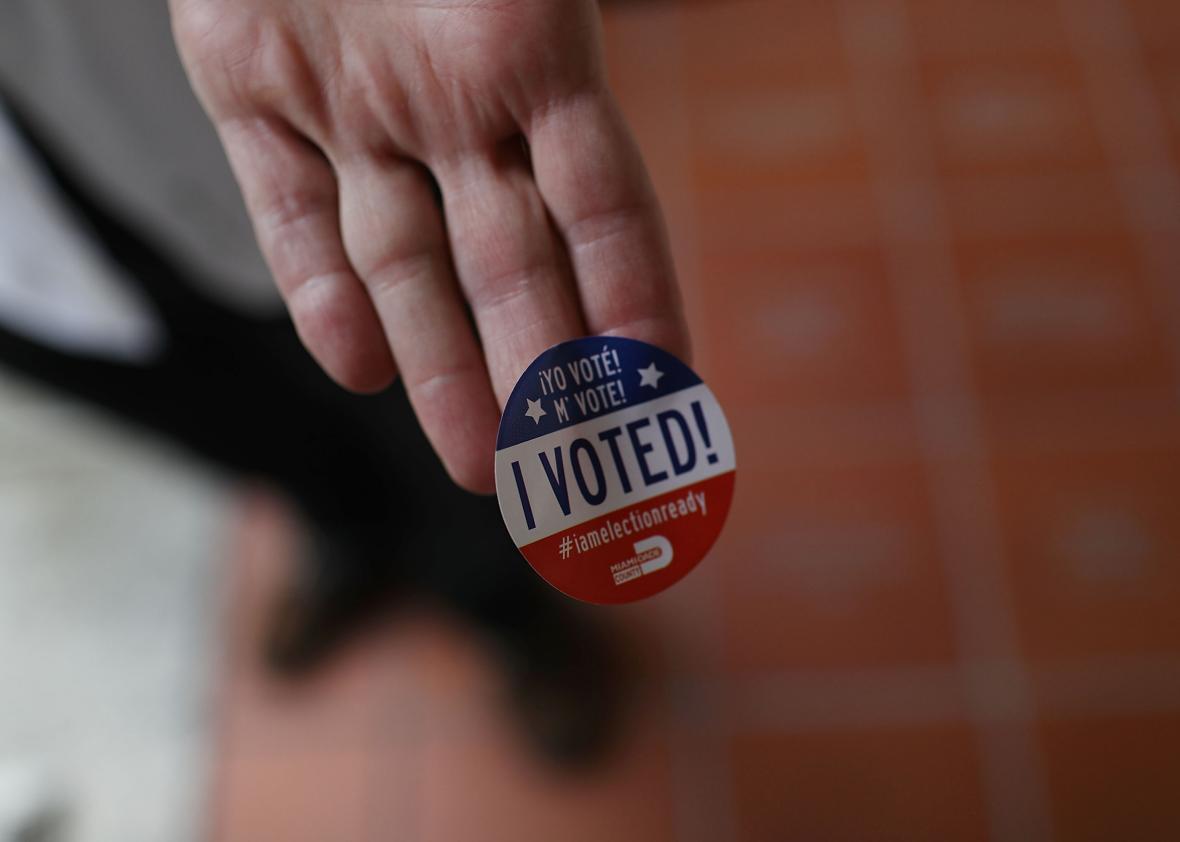The Washington Post and News21 published a thorough analysis on Thursday of alleged voter fraud cases over the past four years in Arizona, Ohio, Georgia, Texas, and Kansas—five states where Republican politicians have argued that voting restrictions are necessary to prevent fraud. Predictably, the study confirmed the academic consensus that in-person voter fraud is simply not a problem: In none of these states over the past four years has a single person been caught impersonating another voter in order to cast an illegitimate ballot.
So much for in-person voter fraud. But does that mean voter fraud doesn’t exist at all? No. Voter fraud does happen—but it almost never occurs at the polls. Instead, as election law expert and occasional Slate contributor Rick Hasen has explained, voter fraud occurs through absentee ballots. The vast majority of voter fraud prosecutions touted by conservative groups like the Heritage Foundation involve absentee ballots that were illegally cast. And the only voting fraud schemes with the potential to actually swing elections involved mail-in ballots, not impersonation at the polls. (This makes sense: It’s much easier to forge a signature, impersonate a voter, or buy a vote in the privacy of one’s home than it is in a voting booth at the polls.)
This distinction is critically important because Republican proposals ostensibly designed to eliminate voter fraud universally target in-person fraud. GOP-sponsored voting restrictions, like the North Carolina law recently ruled unconstitutional and blocked by the Supreme Court, roll back early (in-person) voting and create draconian voter ID requirements. But all evidence suggests these measures do absolutely nothing to prevent voter fraud: They are purportedly designed to thwart voter impersonation, which, again, is virtually nonexistent. None of North Carolina’s restrictions—or any of the restrictions recently pushed through Republican-dominated legislatures—would stop mail-in ballot fraud.
If Republicans were truly serious about eradicating voter fraud, they would severely restrict absentee voting, permitting it only when voters have a good excuse, like illness. Why don’t they do so? Because absentee ballots are widely considered to favor Republicans, just as early, in-person voting is typically viewed as favoring Democrats. Republicans don’t want to restrict a voting method that boosts their chances of winning, even though that method leaves more room for fraud. (Mail-in ballot fraud is still relatively rare, but it isn’t as imaginary as in-person fraud.) Instead, GOP restrictions suppress early in-person voting and Election Day voting, disproportionately and intentionally burdening the minorities who traditionally support Democrats—without stopping any fraud in the process.
Voter fraud exists. It’s not a major problem, but it’s also not a phony problem. Republican proposals, however, are phony solutions. Consider one of the most egregious examples of voter fraud in recent years, committed by Verna Roehm in 2012. A North Carolina Republican, Roehm cast two ballots, one for herself and one for her dead husband. She later explained that she had fulfilled her husband’s dying wish to vote for Mitt Romney. Roehm voted in person and mailed in her dead husband’s absentee ballot. A year later, North Carolina passed a slew of voting restrictions allegedly designed to prevent voter fraud. Not a single one of its restrictions would’ve stopped Verna Roehm.
